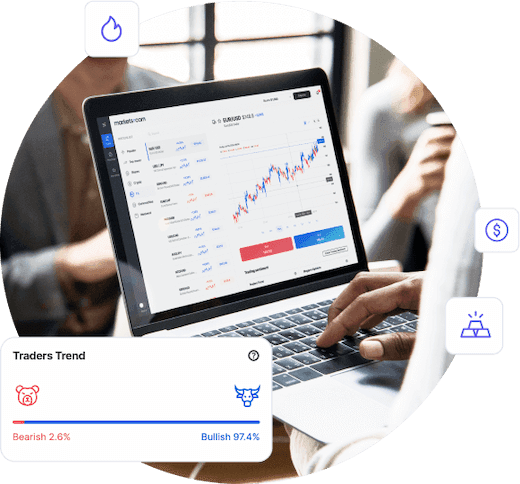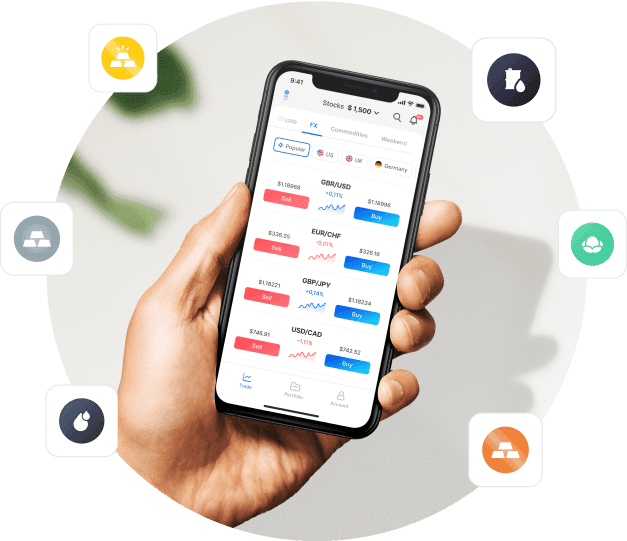
You are about to enter a website operated by an entity not regulated within the EU. Products and services available on this website are not subject to EU laws and ESMA protections. Your rights, regulatory safeguards, and investor protections may differ from those applicable under EU regulation. If you wish to continue under the protection of EU regulatory requirements, please remain on the EU-regulated website.
Calculate your hypothetical required margin for a Commodities position, if you had opened it now.
Category

Instrument


Entry price
Exit price
Open date
Close date
Account Type
Direction
Quantity
Amount must be equal or higher than
Amount should be less than
Amount should be a multiple of the minimum lots increment
USD
EUR
GBP
CAD
AUD
CHF
ZAR
MXN
JPY
Spread
Conversion Fee
Overnight Swaps
Commission
P/L
P/L
Current conversion price:
Past performance is not a reliable indicator of future results.
A Commodity Profit Calculator works by taking into account various input parameters such as the current market price, quantity, and transaction fees. The calculator calculates the estimated revenue generated by selling the commodity and subtracts the total cost of the transaction, including any associated fees, to arrive at the estimated profit or loss. The calculated value helps traders and investors in making informed decisions about buying or selling commodities. By providing quick and accurate profit/loss estimates, Commodity Profit Calculators can be an essential tool in managing the risks associated with commodity trading.
The markets.com commodity calculator makes the complex task of risk management much more digestible and so traders are advised to use it before they decide to put their capital at risk.

Calculating profit and loss in commodity trading requires knowing the price at which you bought and sold the commodity, as well as any associated costs such as commissions and fees. To calculate profit, subtract the total cost of purchasing the commodity from the total revenue received from selling it. To calculate loss, subtract the total revenue received from selling the commodity from the total cost of purchasing it.
However, you don't need to do these calculations manually as online brokers like markets.com offer a commodity calculator that does the job for you. You simply need to input the necessary information, and the calculator will provide you with the estimated profit or loss amount. This makes the process simple and convenient, allowing you to focus on making informed trading decisions.

No, we do not offer delivery as CFDs do not entitle traders to underlying assets. CFDs allow investors to speculate on the price movements of commodities, but they do not represent ownership of those commodities. The benefits of trading commodities with CFDs are that without owning the underlying asset you can benefit from better flexibility, liquidity and lower costs.
To ensure that you're well-informed about your trades, you can easily locate the rollover date for each CFD by visiting its respective asset class page on the markets.com website. Rollover means switching to a new futures CFD contract - it can affect the underlying contract's value and expiry date. It's crucial to be mindful of the rollover date for each CFD on Futures as it can significantly impact your trading outcomes.
The trading hours vary depending on the type of instrument. You may view a full list of them here: https://web-qa.staging.markets.com/trade/trading-hours.
Opening or Closing times may also be altered by markets.com due to liquidity and risk management considerations.